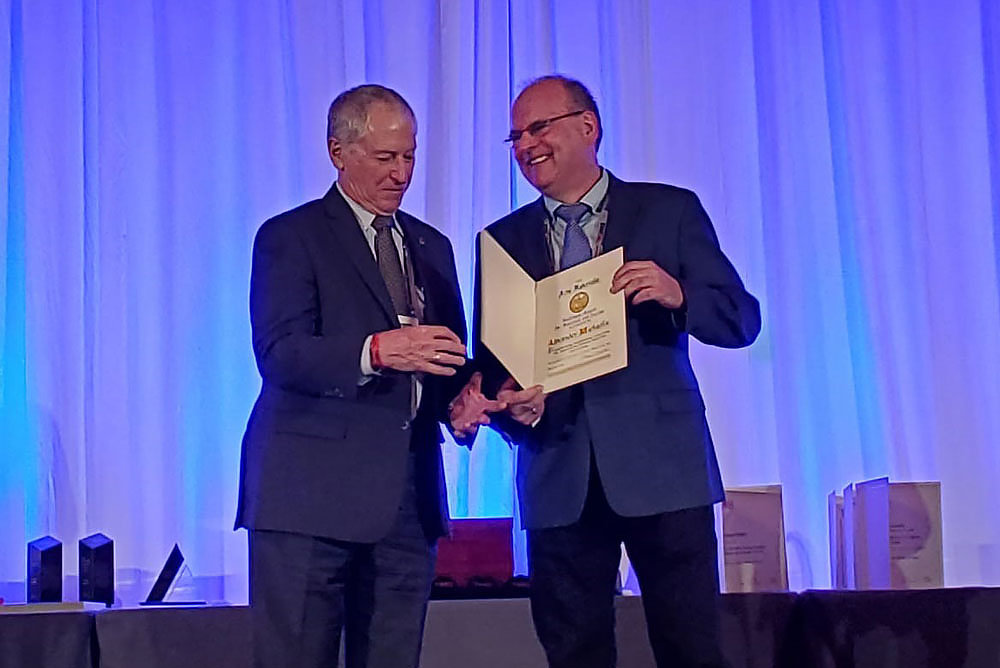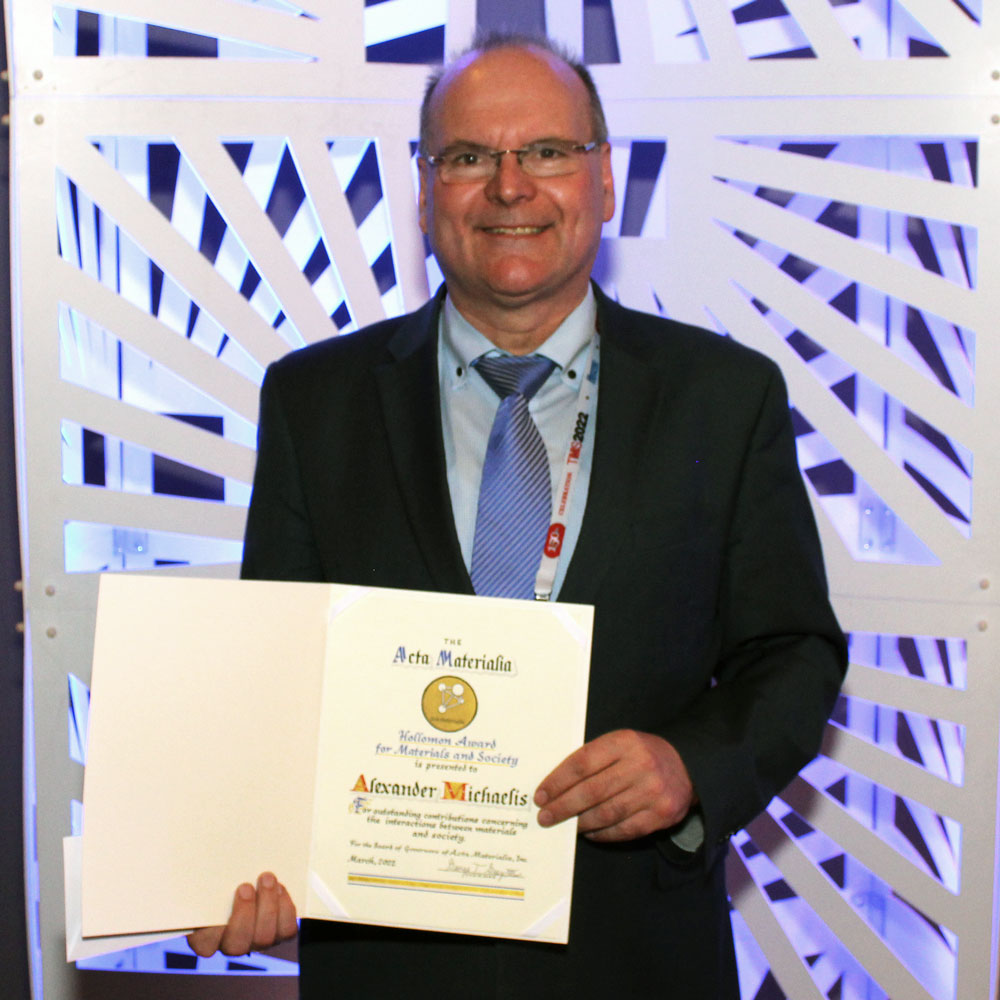News
German Fraunhofer researcher receives two international materials research awards
Prof. Alexander Michaelis, Director of the Fraunhofer Institute for Ceramic Technologies and Systems IKTS, received the prestigious "Acta Materialia Hollomon Award for Materials and Society" and the "Rustum Roy Lecture Award". Both awards recognize his commitment to the materials sciences for the benefit of society.


At the meeting of the Minerals, Metals & Materials Society held in Los Angeles in early March, Prof. Alexander Michaelis received the "Acta Materialia Hollomon Award for Materials and Society 2022". With this annual award, Acta Mineralia, Inc. honors individuals for their outstanding commitment to the field of materials sciences. The award is also intended to raise awareness of the fundamental importance and diversity of materials sciences among both the scientific community and the general public.
Back in October 2021, Prof. Alexander Michaelis also received the "Rustum Roy Lecture Award 2021" from the American Ceramic Society ACerS. The award, which is associated with a public lecture, is presented each year in honor of the late Professor Rustum Roy of Pennsylvania State University and recognizes special contributions to science and technology and their interrelationships with society.
Prof. Alexander Michaelis has been Institute Director of Fraunhofer IKTS since 2004 and is also Professor of Inorganic Nonmetallic Materials at TU Dresden. Under his leadership, Fraunhofer IKTS has developed into one of the largest ceramics research institutes worldwide – with more than 800 employees today and an annual budget of € 83 million.
"This recognition pleases me as a scientist and I see it as a great acknowledgement of the IKTS team performance in our intensive efforts to develop sustainable and economic solutions for the overall societal challenges of our time, such as resource scarcity, energy transition or digitalization," said Prof. Michaelis.
Prof. Alexander Michaelis' research covers the entire field of technical ceramics, including structural and functional ceramic materials and components. Currently, he focuses on battery and fuel cell development, such as conventional and solid-state Li-ion batteries, Na/NiCl2 high-temperature batteries, and solid oxide fuel cells (SOFC). In reverse mode (electrolysis mode), SOFC fuel cells can be used to produce green hydrogen. Compared to competing technologies, such as alkaline or PEM electrolysis, these SOE (solid oxide electrolysis) systems offer an up to 30 % higher efficiency in converting power to hydrogen, since waste heat is actively included in the energy balance. Furthermore, SOE systems are co-electrolysis-capable, meaning that a direct production of syngas using CO2 from the environment is possible, making SOE even CO2-negative. Therefore, SOE technology is ideally suited for power-to-X and closed-cycle applications.
Prof. Michaelis is an academician of the "World Academy of Ceramics WAC", Fellow of the American Ceramic Society (ACerS) and the European Ceramic Society (ECerS). Since 2019, he has been president of the German Ceramic Society e. V. (DKG) and FDKG e. V. (Research Society of the DKG). To date, he has filed 42 patent families, published more than 350 papers in peer reviewed journals and books, and received numerous awards.